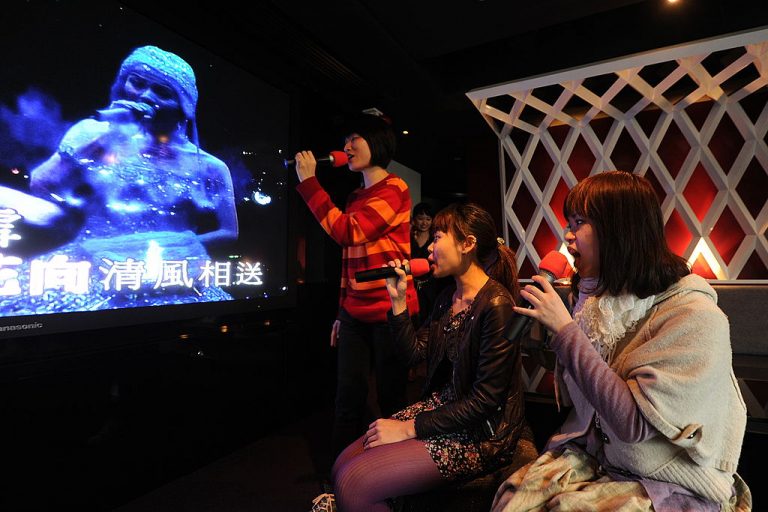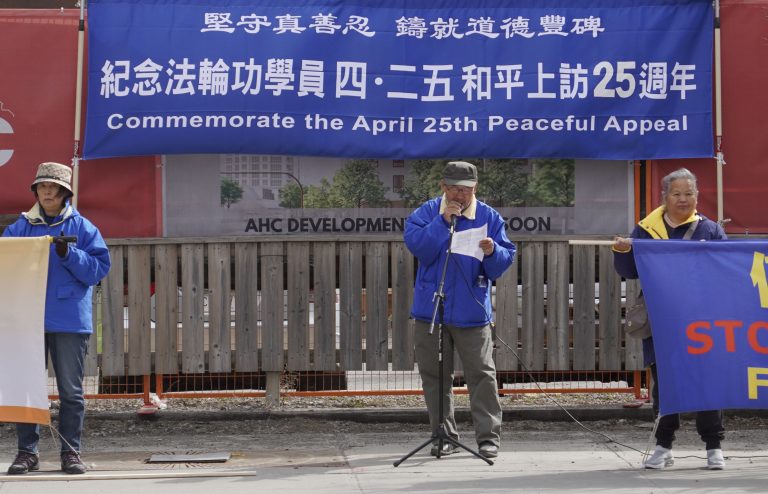The Chinese Communist Party is tightening its grip on all aspects of daily life, social interaction, entertainment, and traditional culture. For example, the Chinese Ministry of Culture recently announced plans to increase control over a popular national pastime: Karaoke.
According to a draft of guidelines posted on the Ministry’s website, karaoke bars will be required to use songs and music brokered by a CCP-created blacklist, in an attempt to ensure only “healthy” and “positive energy” music is heard, according to a report by Radio Free Asia.
According to the Ministry, a karaoke music evaluation board of experts would be tasked with constantly keeping the blacklist up to date. Music and songs will be prohibited and removed if the board determines that they “endanger national unity, sovereignty, or territorial integrity,” “damage national security, honor, or interests,” or “incite ethnic hatred” based on Communist Party rhetoric.
Sun Jialin, a Zhejiang current affairs pundit, told RFA, ”The action is part of the Chinese Communist Party’s continuous effort to control every area of cultural life, including people’s inner thoughts and emotions.”
“Cultural censorship, ideological cleansing; it’s all brainwashing, and judging from the main points [in the rules], this will affect any songs linked to themes of freedom and democracy, human rights, and the rule of law.”
Songs of protest
Success
You are now signed up for our newsletter
Success
Check your email to complete sign up
Music that overtly supports freedoms for any area or people or who criticize the CCP is few and far between. Despite this, there are still many Party-approved songs that repeat the regime’s talking points on issues such as the so-called “liberation” of democratic Taiwan, which, in fact, never was part of the People’s Republic of China in the first place.
Music and songs linked with particular ways of thought, dance, lifestyle, or religion and spirituality, which may have political overlap with some social activities, are more likely to be selected by central censors.
Sun said, “A lot of those tunes, for example, songs by Cui Jian or ‘Vast Sky and Endless Sea’ by the [Hong Kong] rock band Beyond, have become hugely popular in karaoke parlors in recent years.”
Vast Sky, a pro-democracy anthem sung by thousands by protesters in Hong Kong’s 2014 Occupy Central movement has lyrics such as, “Forgive me, but I’ve never given up on my love of freedom.”
Hou Dejian’s “Descendants of the Dragon” is another example of a stirring and patriotic song about Chinese identity that has also been sung during demonstrations, and there are many more.
According to a young Hunan academic who declined to provide his surname, the crackdown is part of the CCP’s larger effort to suppress freedom of speech and thus gain complete control over the public’s thoughts and all aspects of art and expression.
The man, identifying only as Tian, told RFA, “They are worried that certain unstable factors in society will use different methods to destabilize the regime. There is a huge internal and external propaganda drive afoot in the cultural sphere right now. It’s all about ideological control. An authoritarian mindset insists on controlling society.”
The CCP’s cultural facade
The Epoch Times reported on Feb. 14, certain major Chinese news sources stated that the Communist Party had unveiled a new policy entitled Major National Policy of the State Council: Comprehensive Rejuvenation of Traditional Chinese Culture by 2025, foreshadowing the regime’s intentions to once again change modern Chinese culture over the next five years under the banner of restoring traditional culture.
China critics accuse the CCP for exploiting traditional culture and using it as a political tool for its selfish political gains while destroying the values of Chinese customs and beliefs.
China-based internet writer Jing Chu told The Epoch Times on Feb. 16 that Chinese Communism has failed and is rapidly losing followers. Because China’s economic growth has slowed in recent years, and is still not secure, the CCP is also losing credibility, so it props itself up with a facade of “nationalism and traditional culture,” and thereby deceives the Chinese people.
Jing also mentioned that Chinese Communism is incompatible with Chinese culture as China’s ethical principles rest on Confucianism’s “humanity, justice, wisdom, kindness, and trust” ethics.
At the same time, the Party is promoting violent ideologies such as Mao Zedong’s “Communism is not love. Communism is a hammer which we use to crush the enemy.”














